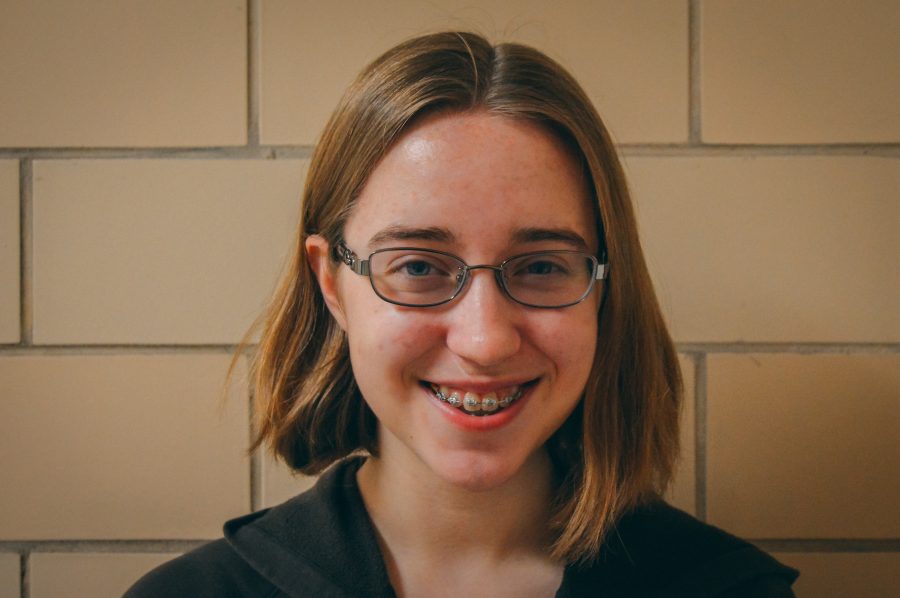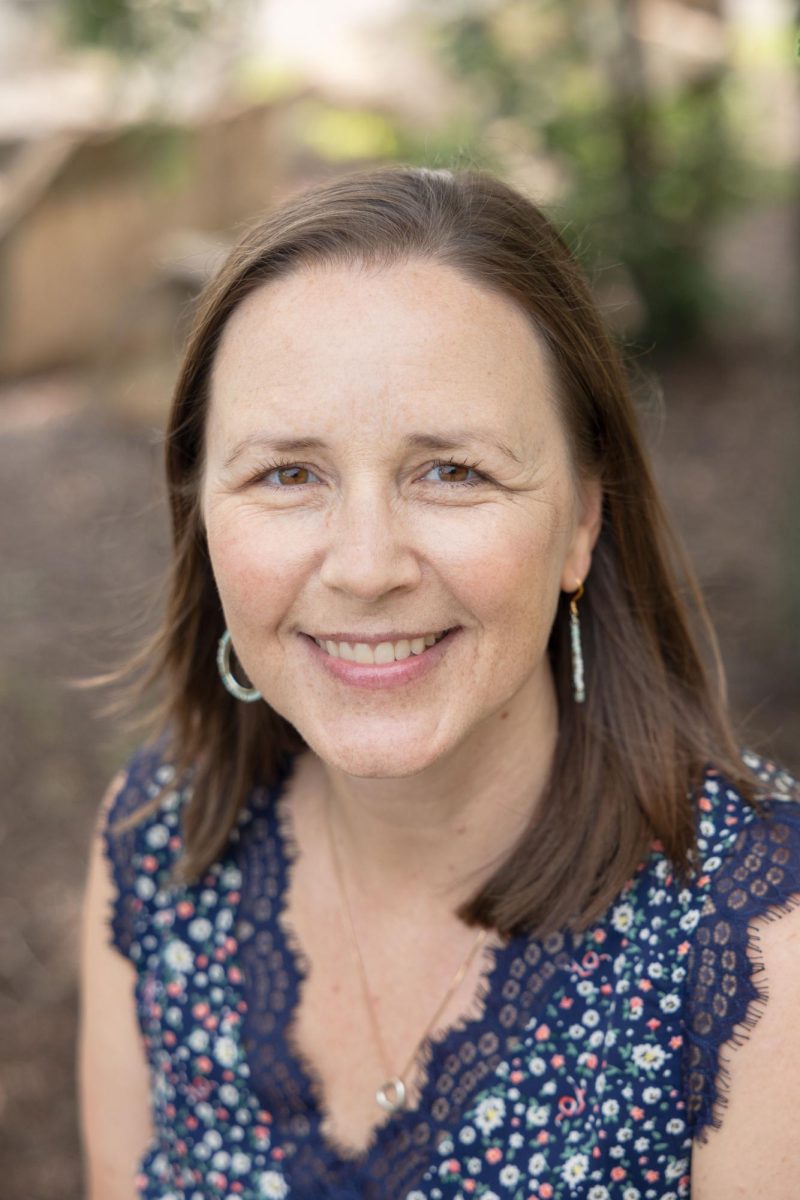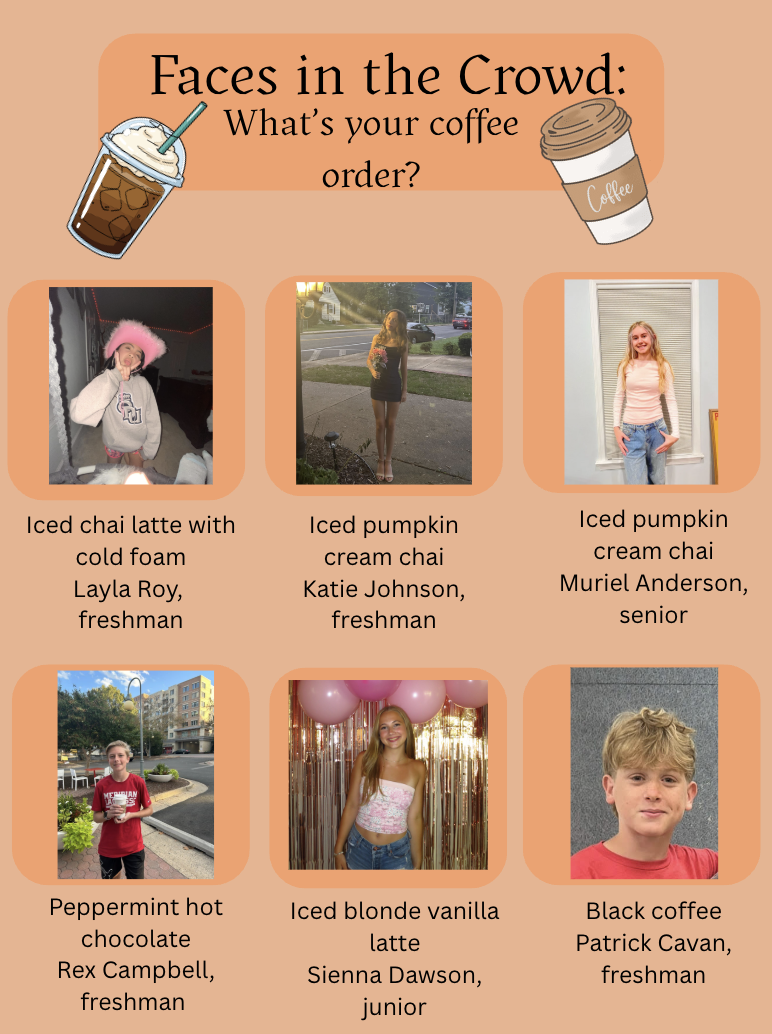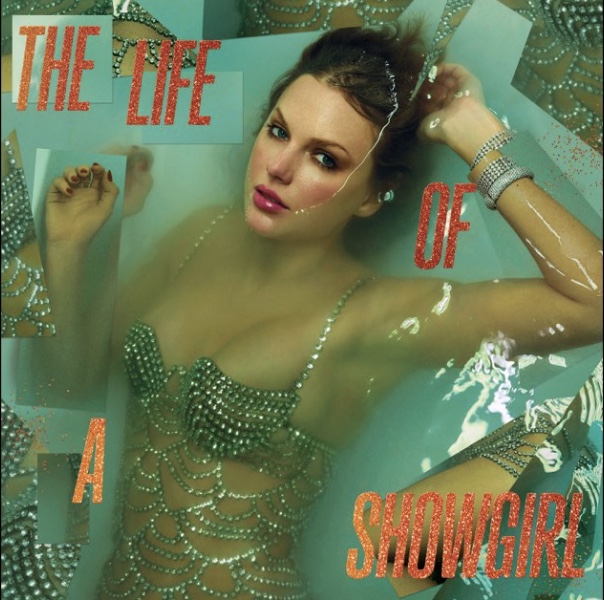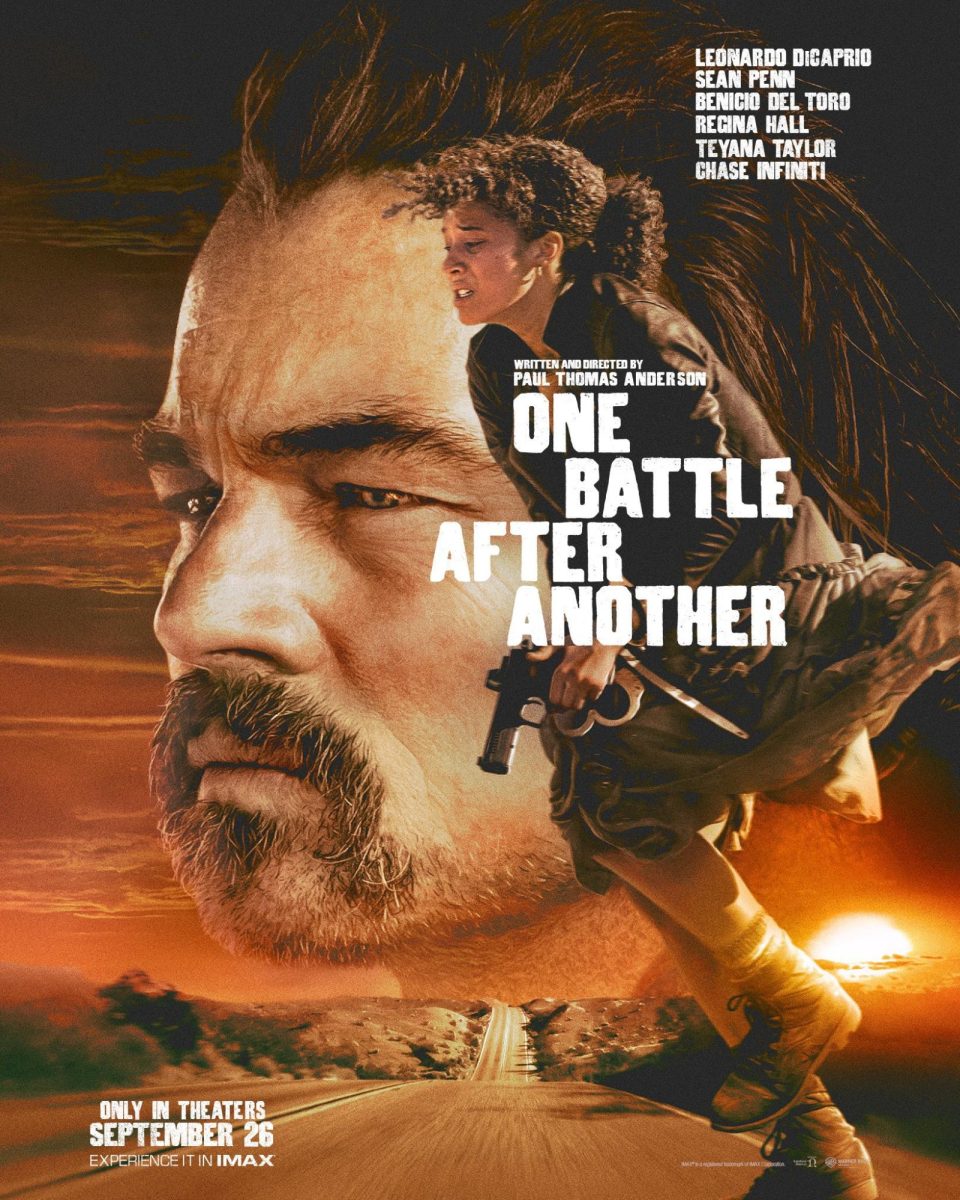Sophomore Kitty Tibbetts is known for her facts, so I asked her for some.
“Facts about what? That’s too broad. Point to something and I’ll give you a fact about it,” she said.
“Eye,” I said.
“The reason cats’ eyes seem to glow in the dark is because they have these like tiny scale like formations on the back of their eyeballs, and in low light conditions those scales create a reflective layer, so their eyes aren’t actually creating light, they’re providing little mirrors to bounce around the light that there is around the cat’s eyeball and amplify it so the cat can see much better,” Kitty said.

“Wheel,” I said,
“There is a desert spider that turns itself sideways and wheels itself down sand slopes like a pinwheel!” Kitty said.
Knowing everything there is to know about pretty much anything and specializing in mushroom facts, Kitty Tibbetts is not your average sophomore at George Mason High School.
You many not know Kitty, but you’ve probably seen her walking through the school halls, with her eyes buried in a book, wearing some colorful and abstract outfit. You don’t have to know her to realize that she’s incredibly interesting, because her original style perfectly mirrors her unique character. I’m not exaggerating in the slightest when I tell you that Kitty Tibbetts is the most creative, intelligent, and unique person I know.
Kitty and I sat on her bed for our interview. I immediately noticed the infinite and diverse mushroom sculptures that flooded her bedroom. She has framed artwork that she created herself all along her walls, and each of them are identically signed with her name (Kitty), followed by a mushroom, and then the number 27.

Just about everyone who’s remotely close to Kitty knows how much she loves mushrooms. When I asked sophomore Aziza Leijic to describe Kitty for this profile, she used four words, “Mushrooms, cats, knows everything.”
Thus, I decided to start off the interview, by asking Kitty about her interest in mushrooms. Just as I expected, Kitty had a lot to say about this topic.
“I love mushrooms so much that my grandparents got me a mushroom expert to take me on walks through the woods to hunt mushrooms and we found the coolest different types of mushrooms,” she said.
She described the mushrooms she found on the trip in intricate detail, such as the Bleeding Tooth Mushrooms she found that “looked like balls of dough with blood coming out of them,” and then gave me more “fun facts” about mushrooms.
“If you pluck a mushroom from the ground, it doesn’t die because that mushroom is like the fruit of a tree under ground that you can’t see made out of a white webbing called mycelium that grows in the soil and inside tree bark,” she said.
Clearly, Kitty knows what she’s talking about.
“It’s fun to talk to her because while you do, you’ll always learn something,” sophomore Andrew Blenke said.
“We’ll just be sitting in art class and she’ll start telling me about all these cool mushrooms, mantis shrimp, or bats. It’s really cool because I normally never would have thought to think about mantis shrimp or bats, but then, she starts talking, and I’m actually like wow that’s really cool,” said sophomore Emma Foley.
Teaching others is exactly what Kitty intends to do. “[I want to] broaden people’s minds, and therefore make the world a better place because I believe it is my moral obligation to leave the world a better place.”
Kitty wants to join the Peace Corps (or something like them) when grows up, and after settling down, become a mushroom farmer in the mountains.
“I am very passionate about learning; I like biology and natural anthropological sciences. I’m very into learning about different cultures, and how they relate to one another,” Kitty said.
Before Kitty started going to GMHS at the start of this year, she attended a private school in Fairfax County called The Auburn School.
“It was less a private school than glorified homeschooling,” she said.
The school was small, with only about 40 other kids and a handful of teachers, though the teachers had multiple jobs; for example, Kitty’s math teacher was also her science teacher. Auburn is a school for students with learning or social disabilities.
“I have Asperger’s syndrome, which is high-functioning autism. I’d actually been at Auburn longer than anyone else by the time I left, so you can’t really tell that I would have ever needed to have it, but yeah, it was great,” Kitty said. “It was a really chill environment.”
Even though she attended Auburn on an exceptional scholarship, Kitty left the school because she felt like she had outgrown it.
“I was ready for a new, more challenging environment, and it wasn’t like I felt like I was going to learn more by going to a public school,” she said. “[I knew] that it would help me work on my executive function skills, which were more supplemented at Auburn, so that I would be better able to eventually get a job.”
Kitty described Asperger’s and the many misconceptions surrounding it to me.
“It’s a disorder that affects a lot of things. It’s not something that is easy to describe. It’s like a different way of wiring the brain itself, and right now they think it is a deficiency in the part of the brain that processes empathy,” she said.
Unlike other conditions, however, people with Asperger’s tend to have too much empathy to deal with but are unable to express it or connect it to other people. According to Kitty, this leads many people with Asperger’s to treat everyone the same and struggle to find tunes of social relationships.

“It’s like everyone is born with a social language and the kids with autism are not able to speak it. Or a better example might be everyone can put paint on a canvas, and most people can see, so they can see what they’re doing and see how to make a pretty picture, but for people who are blind, most of the time they can learn the motions of painting, they can become pretty good painters, but they are not able to see the big picture. And that’s the problem,” Kitty said.
People with Asperger’s syndrome and high-functioning autism in general tend to have really good memory and repetition skills. Kitty notes her strength in reading, memorizing facts and retrieving them, but recognizes that she has trouble with verbal comprehension.
“Albert Einstein, they think, had Asperger’s syndrome, and that’s what allowed him to ruminate so obsessively on the questions of the universe and so it’s not necessarily a bad thing but it is something that can make it very hard to deal with the outside world. And that’s what Auburn gave me the tools to use,” Kitty said.
Kitty found an obsession with words early on, even though she learned to read pretty late for her age. “People would say ‘sound out the letters’ but English is not written phonetically so it was incredibly hard for me,” she said.
This led Kitty to construct her own phonetic language though a symbol system where each symbol corresponds with a sound, instead of a letter. Kitty still uses it sometimes.
When asked what her greatest accomplishment is, she first said that was she hasn’t done anything with her life yet, but then her eyes lit up as she revealed her crafts.
“I made a really really intricate rainbow loom bracelet once and one time I made a castle on minecraft, a huge one with a blue roof,” Kitty said laughing.
Kitty has also participated in multiple service trips to West Virginia and a Native American reservation in Arizona.
“My experience there [in the Hopi Reservation] was transformative. I went with a Unitarian Universalist group with 27 kids and adults,” she said.
They stayed on the land of a reclusive Hopi potter who doesn’t use any machines or paints. Instead, he makes his own paint with crushed rock from the desert and uses yucca reed as a paintbrush. Kitty and the others made care packages for the Hopi elders and would listen to their stories when they brought them to them. They also fixed up houses and built a new.
“I repaired a traditional pueblo oven in the old style,” Kitty said.
The experience brought a lot of cultural and environmental awareness to Kitty, especially after drinking fresh water out of a spring and finding limestone formations around the reservation. Being so immersed with the Hopi kickstarted Kitty’s interest in research pre-Columbian civilizations.
Kitty has seen and done it all. When she is not reading about another mushroom species or citing a fact to someone, she is likely outside somewhere across the country dedicating herself to helping others. In all of these things, Kitty is always learning and always teaching others, and that is what makes her so interesting.



